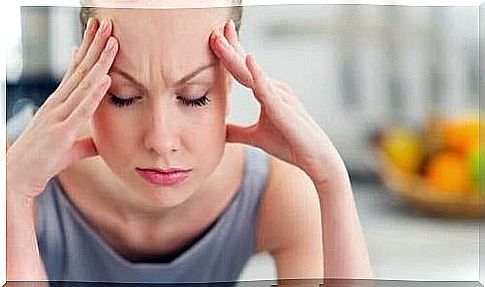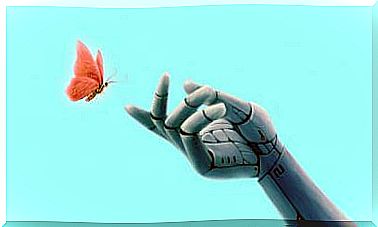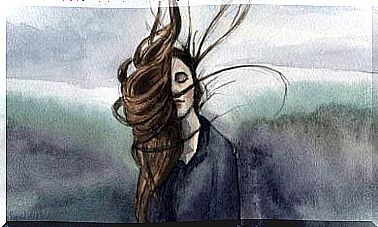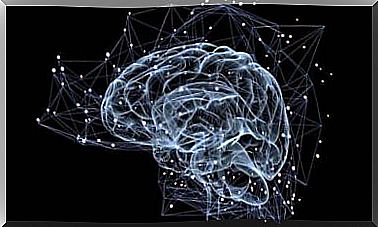The Differences Between Stress And Anxiety

Stress and anxiety are considered to be very similar reactions, to the point that they are often confused, given that their psychophysiological activation process is similar. However, these are different reactions, just as their repercussions on health are different; what they have in common is that they both arise in response to a given situation.
In general, anxiety disorders and stress problems have negative health consequences. Intensity and duration are the factors that mark the difference between these two responses which, at first, appear as defense mechanisms.
The stress
Responding with stress allows us to have more options for dealing with unusual and exceptional situations. It acts as a warning sign that we pay attention to what is important to us.
The presence of stress in our lives, in itself, is not harmful: it has a basic function for our survival.
What hurts us is the duration, that is, when the stress continues over time. This happens when we perceive the surrounding environment as a threat and make a negative assessment of the skills or resources we have available to deal with the current situation. In this case, our immune system suffers or weakens, leaving room for health problems and / or diseases.
Stress occurs as a consequence of the perception of a certain situation, of what we are required to do and of the tools we have available to deal with that circumstance.
If we have a negative view of our abilities and have little faith in our abilities, stress is likely to present itself in various situations.
Prolonged stress affects our muscles, thus increasing our feeling of tiredness, causing contractures, sleep and eating disorders and favoring the appearance of cardiovascular diseases.

Anxiety
Initially, the activation of our organism in front of a threat can provoke a reaction of fear or anxiety; when this activation persists for a long time, without recovering the previous and normal levels, it is stress.
For example, a student, before an important exam, experiences an increase in anxiety activation, in order to be able to put all his energy into what he considers important. If, once the examination is carried out, this activation persists, it turns into adaptive stress, implying negative repercussions on health and other areas of life.
At first, anxiety also manifests itself as an adaptive response, because it tries to give an immediate response to a threatening situation. It is a situational reaction limited in time : anxiety manifests itself as an alarm signal, in a much more intense way than the alert caused by stress.
Anxiety is considered an emotional response with varying degrees of activation ; genetically, it arises in the human being as a defense mechanism, to prepare him to face an important event, both dangerous and interesting. This is an essential response for the survival of the species.

The difference between anxiety and fear
The difference between anxiety and fear is, essentially, that anxiety is produced before something happens and prepares us to face a future threat or change. Fear, on the other hand, is produced by something that is already happening, by an ongoing danger, which activates the sympathetic nervous system.
Anxiety disorders arise after the activation of certain stimuli that do not constitute a real danger, as happens for many phobias: the activation is disproportionate and maladaptive, since physical damage is not a real possibility.
The importance of relaxation to combat stress and anxiety
Learning relaxation and breathing techniques can help us reduce the excess of activation, which causes stress and anxiety to appear in us.
The rhythm of the society in which we live favors the appearance of responses of this type, which end up becoming chronic; therefore, it is essential to make use of strategies to calm our mind and our physiological activation.
There are several techniques, such as autogenic training, progressive relaxation, abdominal breathing, biofeedback, etc., which we can use to counteract the negative effects of stress and anxiety. Furthermore, we can use them as a preventive means to reduce activation levels in the face of a situation that no longer represents a threat.
Faced with stress and anxiety, relaxation techniques are useful to increase the activation of our autonomic parasympathetic system and to decrease the activity of the sympathetic system, promoting balance.









